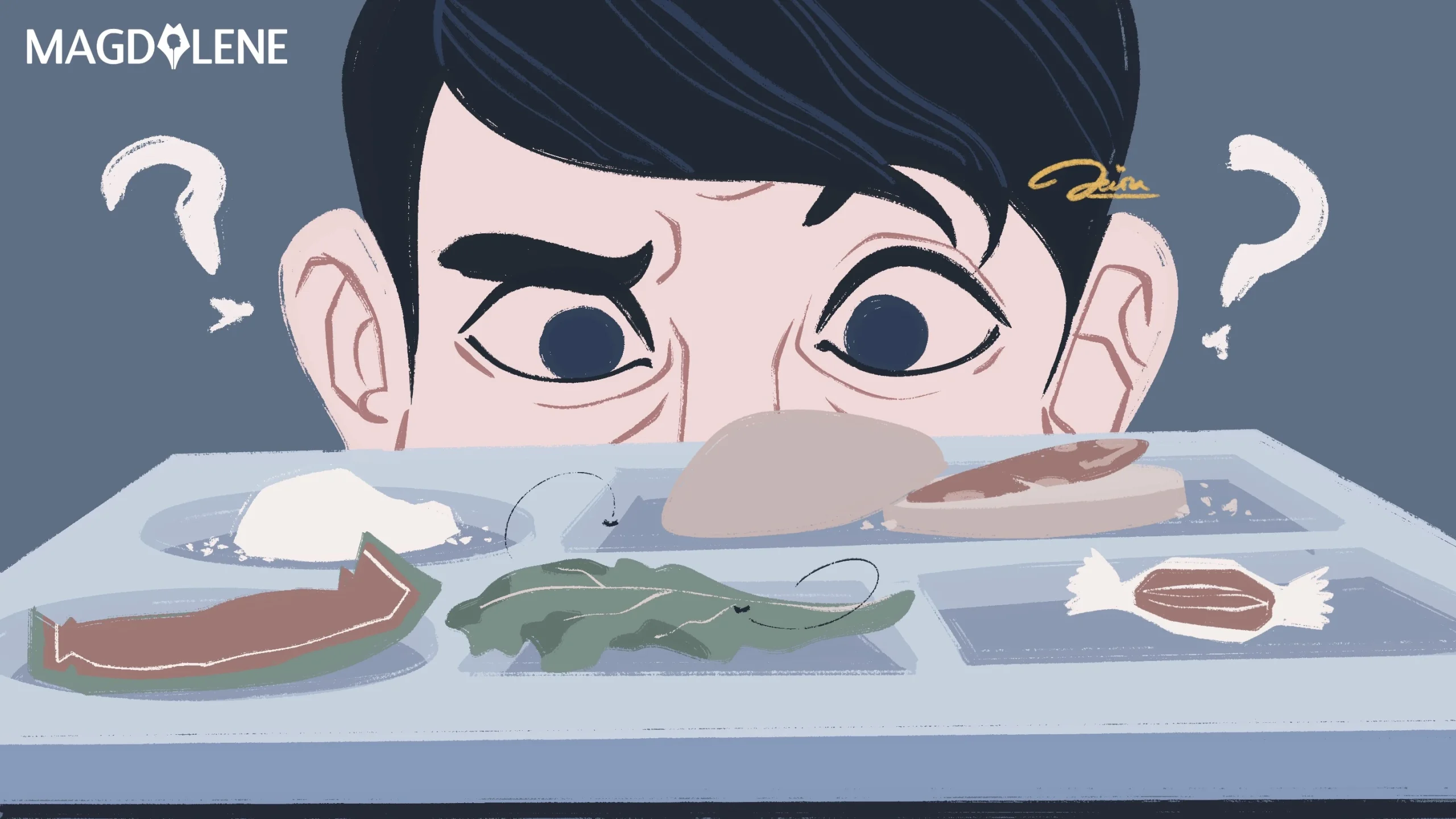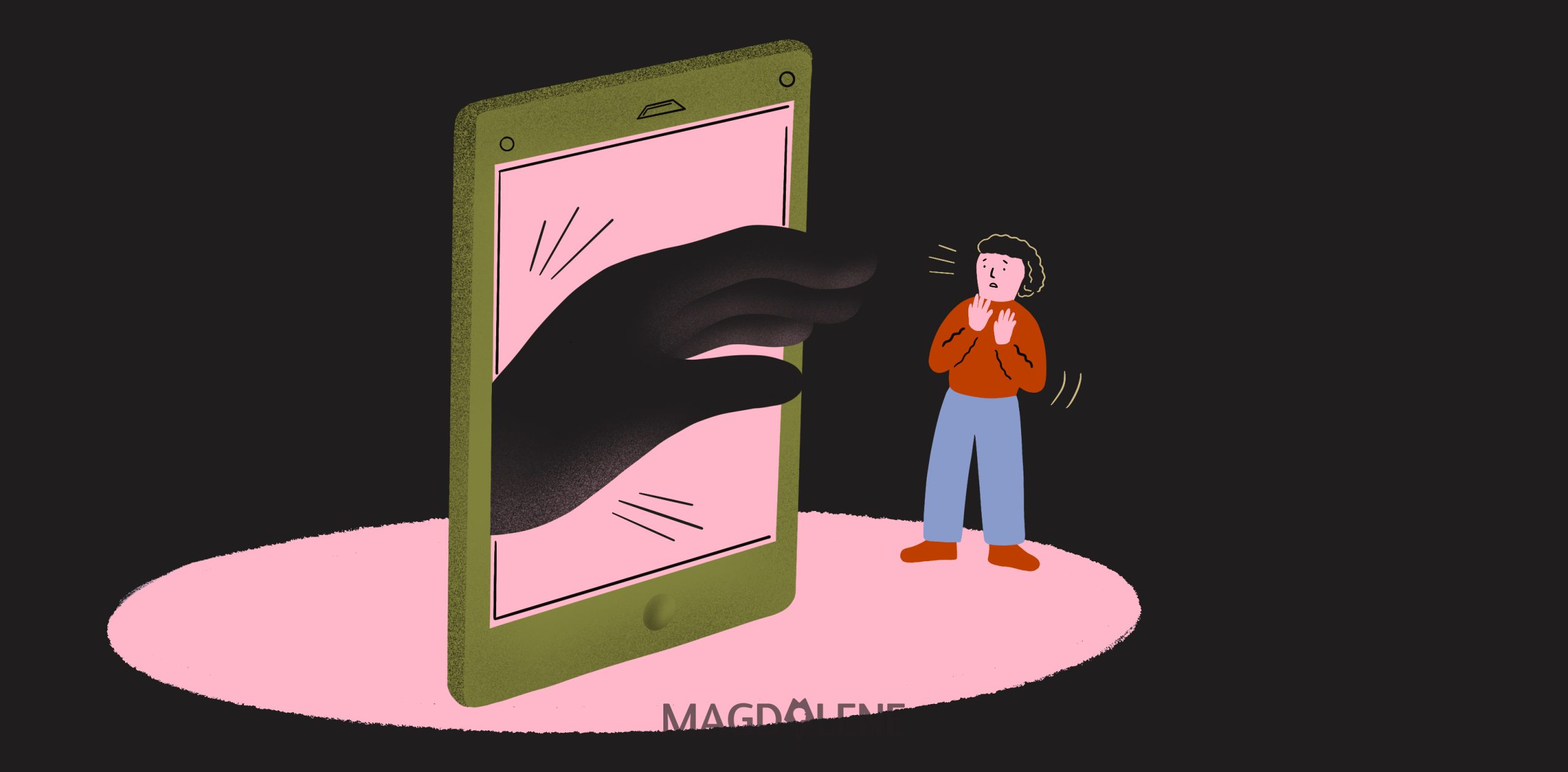Thyroid Survivors Suffer Quietly Amidst Misperception

In May 2014, Bunga Ramadani was in Saumlaki, Western Southeast Maluku working as a volunteer teacher for the “Indonesia Mengajar” (Indonesia Teaching) initiative, when she started to have trouble breathing.
“I was preparing for the National Education Day event, when I felt overwhelmed and begin to have a problem breathing. When I was sleeping, I couldn’t breathe fully; my breath was becoming short,” she said during an interview.
She visited a doctor, who found a lump on her neck. After undergoing ultrasound test, she was diagnosed with a tumor, but she was still unconvinced.
“My supervisor advised me to return to Jakarta to find out my real condition,” she said.
After consulting a surgeon and undergoing ultrasound, X-ray, and thyroid function tests, she was sent to a surgical oncologist who recommended a thyroid gland removal surgery. In addition, she had to take synthetic thyroid hormone daily for the rest of her life. According to her pathology report, she was diagnosed with tall cell variant (TCV) of papillary thyroid carcinoma and Hashimoto thyroiditis.

Bunga is just one of the many people who suffer from severe thyroid condition quietly. Physically, they may not appear to be suffering, a fact that often leads to misunderstanding and stigmas that they were just being weak. Many people believe that thyroid disorder isn’t a deadly disease.
Bunga, who now works as an institutional relations manager in a think tank institution, said that although the cancer was still in its early stage, it could spread to other parts of the body if left untreated. TCV is a relatively rare variant of papillary thyroid cancer, while Hashimoto is a condition in which the immune system attacks the thyroid. The condition causes hypothyroidism which means the thyroid doesn’t produce enough hormones for the body’s needs.
That same year, Bunga met Astriani, another person with a thyroid disease through social media.
“Three months after being diagnosed with cancer and Hashimoto, I started to gather the courage to speak up. I felt that if I shared my experiences, I would be able to find friends who had the same conditions. So I uploaded a photo collage on Instagram about my diagnosis. When Astri responded to my post, she told me that her papillary thyroid cancer had spread to lymph node,” said Bunga.
The two founded Pita Tosca, a support group for thyroid survivors. She realized she had so far relied mostly on Thyroid Cancer Survivors’ Association’s website (thyca.org) for information.
“I had felt isolated because of the limited information. I was also depressed because I didn’t know whom should I talk to. My family had no idea what thyroid disease looked like,” she said.
Through Whatsapp and closed Facebook group, members of this community share their experience or discuss issues related to their condition. Occasionally, Pita Tosca also organizes health discussion about thyroid health.
“It’s important to share experience. In this community there’s someone who has survived for 20 years. That’s what inspires us,” Bunga said.
Thyroid as a gender issue
Thyroid is a small gland located at the lower front part of the neck that produces hormones that help regulate metabolic process in the human body. Thyroid disorders affect both women and men, but according to the American Thyroid Association, women are five to eight times more prone to thyroid disorders.
There’s a closed link between estrogen hormone and thyroid. Estrogen is one of the most important hormones for women that plays an important role in the sexual and reproductive health. But this hormone could also have a negative impact on women.
“Estrogen could increase the production of autoantibodies,” said Laurensius Aswin Pramono, an internal medicine specialist at Carolus Hospital in Central Jakarta, when interviewed via WhatsApp last May. Autoantibodies are antibodies that mistakenly target a person’s organs, including thyroid.
Along with various symptoms of thyroid disorder, menstrual problem is a typical one. Bunga said that when she had hypothyroidism, she experienced heavy menstrual bleeding and longer menstrual period.
To relief her of the thyroid cancer, Bunga underwent the radioactive iodine ablation treatment, which caused her to suffer more from hypothyroidism. To treat the hypothyroidism, she then had to take hormone replacement pills in a slightly higher dose, which, in turn, made her condition swing to hyperthyroidism. Her menstrual period became much shorter and her blood flow lighter, but she would also suffer from brain fog.
“My ex-boyfriend would mention several events that I didn’t remember at all. For him it was a problem. He would ask me: ‘How could you not remember these things? How could you forget them?'” she said, quoting him.
Brain fog doesn’t only involve poor memory, but also difficulty focusing. Bunga confessed that she had difficulty reading long texts.
Though a large percentage of people with thyroid disorders are women, men are not entirely free from the threat.
When Stevan Samuel was a freshman in junior high school, he began to lose weight drastically from 51 kilogram to 40 kilogram. At first, the civil engineering student at Gadjah Mada University assumed it was part of his physical growth.
“I thought that I was thin because I did many activities. But then my eyes started to bulge. Also, when I exercised, I felt woozy. Then, I noticed a lump at the lower part of my neck,” he said when we met for an interview in April.
To relief her of the thyroid cancer, Bunga underwent the radioactive iodine ablation treatment, which caused her to suffer more from hypothyroidism. To treat the hypothyroidism, she then had to take hormone replacement pills in a slightly higher dose, which, in turn, made her condition swing to hyperthyroidism.
Stevan was diagnosed with grave disease (an autoimmune disease that causes hyperthyroidism) and as a consequence, he could no longer play football. Doctor recommended him to practice lighter sports such as jogging or working out at a gym. But even these options could prove fatal, if he didn’t measure the intensity.
“I once exercised at the gym when my stomach was empty. After working out, I was admitted to the emergency room,” he said.
Stevan didn’t undergo surgery, but it doesn’t mean that he never experienced a wide variety of symptoms. “Sometimes I feel tired and have a headache. My heart beats really fast and I have sleeping problems. Almost every night I sleep at 4 or 5 am,” he said.
Sleep disruption disturbs his daily activities, especially when he has to wake up early to attend class. “My class starts at 7 am and ends at 11.50 am. If I don’t get enough sleep, I can suffer from high blood pressure that may cause headache or fainting.”
To make matters worse, macho culture hurts men who suffer from thyroid disfunction. Stevan is often teased as weak when people see him looking exhausted during physical and daily activities.
“I once went hiking with some friends who didn’t know my real condition. I had vowed to finish the route when we started, but when I was halfway up, I became very tired. Because there was a girl who joined us, my male friends compared me to her. They said: ‘If she can do it, why can’t you?’” he said.
Bunga and Stevan have undergone radioactive iodine ablation treatment, which is usually given in pill or liquid form. In some cases, after ingesting the pill, patients have to be isolated in a quarantine room for several days, depending on the dose determined by the nuclear medicine specialist.
“If patients are given small doses of iodine, like those with hyperthyroidism, they don’t need to be quarantined. Only thyroid cancer patients who get a relatively large dose should be treated in a special isolation room,” said Alvita Dewi, a nuclear medicine specialist at Cipto Mangunkusumo General Hospital who often treats thyroid cancer patients,
Side effects of this medications include nausea, vomiting, and swelling in the neck, she said, but these effects are relatively mild and temporary, she said.
Nuclear medicine is still a largely unpopular medical treatment in Indonesia because of the negative stigma attached to the word “nuclear”. In reality, however, nuclear medicine technology has been used worldwide to cure cancer.
“Patients get scared when they imagined the treatment procedures of nuclear medicine. Many times they come with anxious and frightened face saying: “Doctor, would I be shot with nuclear weapon? They would understand better after getting therapy,” Dr. Alvita said.
Misperceptions around thyroid disease
To the uninformed, thyroid disorder may seem like a mild disease, but Bunga said this is a misperception.
“Maybe thyroid disorder is not considered a life-threatening disease. However, it degrades the quality of life. It isn’t lethal unless you are hit by the so-called ‘thyroid storm’,” she said.
Possibly life-threatening, a thyroid storm often involves rapid heartbeat, fever, and fainting. It can happen for hours and may require immediate hospitalization.
Doctors also often dismiss patient’s symptoms. Bunga told me that sometimes doctors rely on lab results too much.
“One doctor told me that my lab result was good; I was judged by numbers. Our disease gets simplified into numbers. What I wanted was feedback on why I got tired so easily, why I couldn’t sleep, why I felt restless and anxious, and why I experienced hand tremors. Even though the lab results are normal, it doesn’t mean the symptoms don’t exist,” she explained.
Based on the symptoms, Bunga was referred to a psychiatrist. During a consultation with mental health professional, she vented all her health problems. Eventually she was told that if a person’s thyroid can’t function properly, she or he would not feel mentally healthy.
Dr. Alvita explained how thyroid disorders can affect mental health: “Hyperthyroid can cause anxiety and mood swings. It also triggers sleep problems that lead to a lack of concentration and tiredness.”
“Imagine if these conditions occur in prolonged periods. It could deteriorate academic achievement or productivity at work,” she added.
As for Stevan, it is getting more difficult to pretend to be healthy and maintain his social life. Even when he suffers from a headache caused by high blood pressure, he still forces himself to hang out with his friends, trying hard to mask the pain. Some of his friends know what he is going through, still, they are not aware of the extent of his suffering.
“Because I can still hang out and I don’t need bedrest, they think I’m physically fit,” he said.
Find out how female athletes struggle against inequality.






















